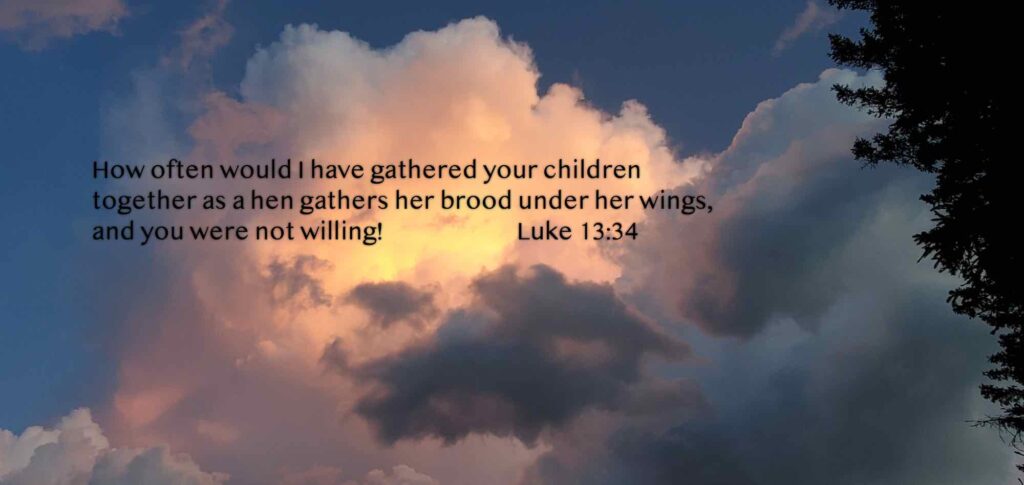July 13, 2025

Luke 13:31–35 ESV
At that very hour some Pharisees came and said to him, “Get away from here, for Herod wants to kill you.” And he said to them, “Go and tell that fox, ‘Behold, I cast out demons and perform cures today and tomorrow, and the third day I finish my course. Nevertheless, I must go on my way today and tomorrow and the day following, for it cannot be that a prophet should perish away from Jerusalem.’ O Jerusalem, Jerusalem, the city that kills the prophets and stones those who are sent to it! How often would I have gathered your children together as a hen gathers her brood under her wings, and you were not willing! Behold, your house is forsaken. And I tell you, you will not see me until you say, ‘Blessed is he who comes in the name of the Lord!’ ”
Discussion Questions:
1) What does Jerusalem represent in these passages? (Consider that Jesus will not die through the instrumentality of Herod, who is purely a political figure in Israel.)
2) How do you understand verse 35?
Discussion Summary:
Jerusalem can refer to the actual city as the seat of political power. An example of this can be found in Jeremiah 26:20-23. Because the Romans were in control of this entire area during Jesus’ day, the focus seems to be on Jerusalem as the seat of religious power. There was only one temple for Jews and that was in Jerusalem. The whole nation was misguided by their religious leaders who prevented them from accepting Jesus as the Messiah (Acts 7:51-53). Jesus was killed in Jerusalem and through the agency of Jerusalem.
In verse 35, the word “house” can refer to the temple in Jerusalem which was the House of God, or it can refer to the entire nation (Hebrews 3:1-6). Jesus prophesied that the temple in Jerusalem would be destroyed (Matthew 24:1,2) and the city and surrounding area would also be destroyed (Luke 21:20-24). This was fulfilled in 70 CE by Titus the Roman Emperor.
Leave a Reply